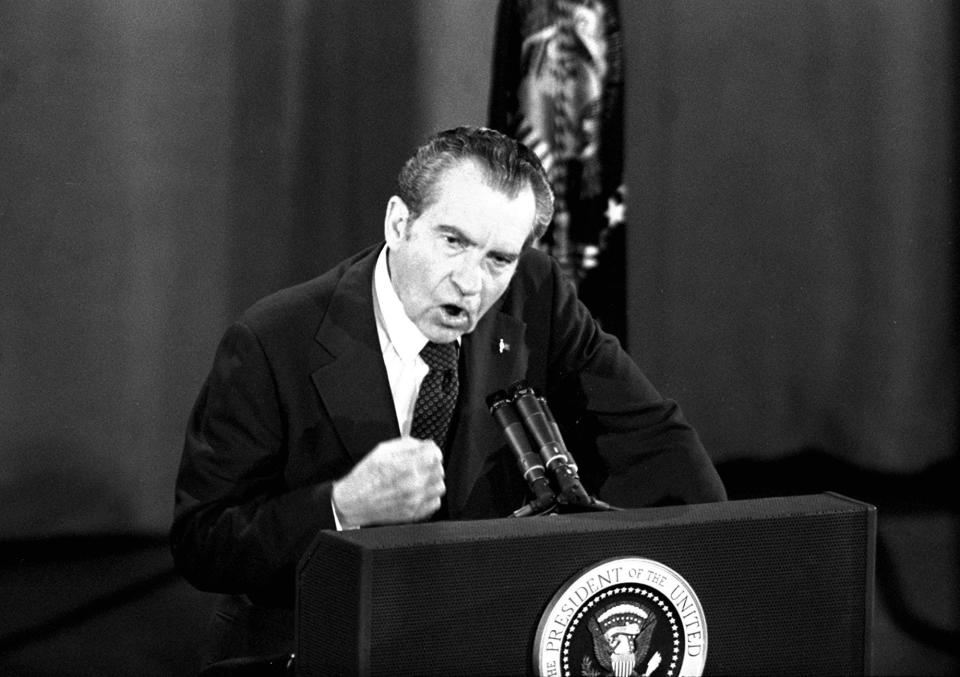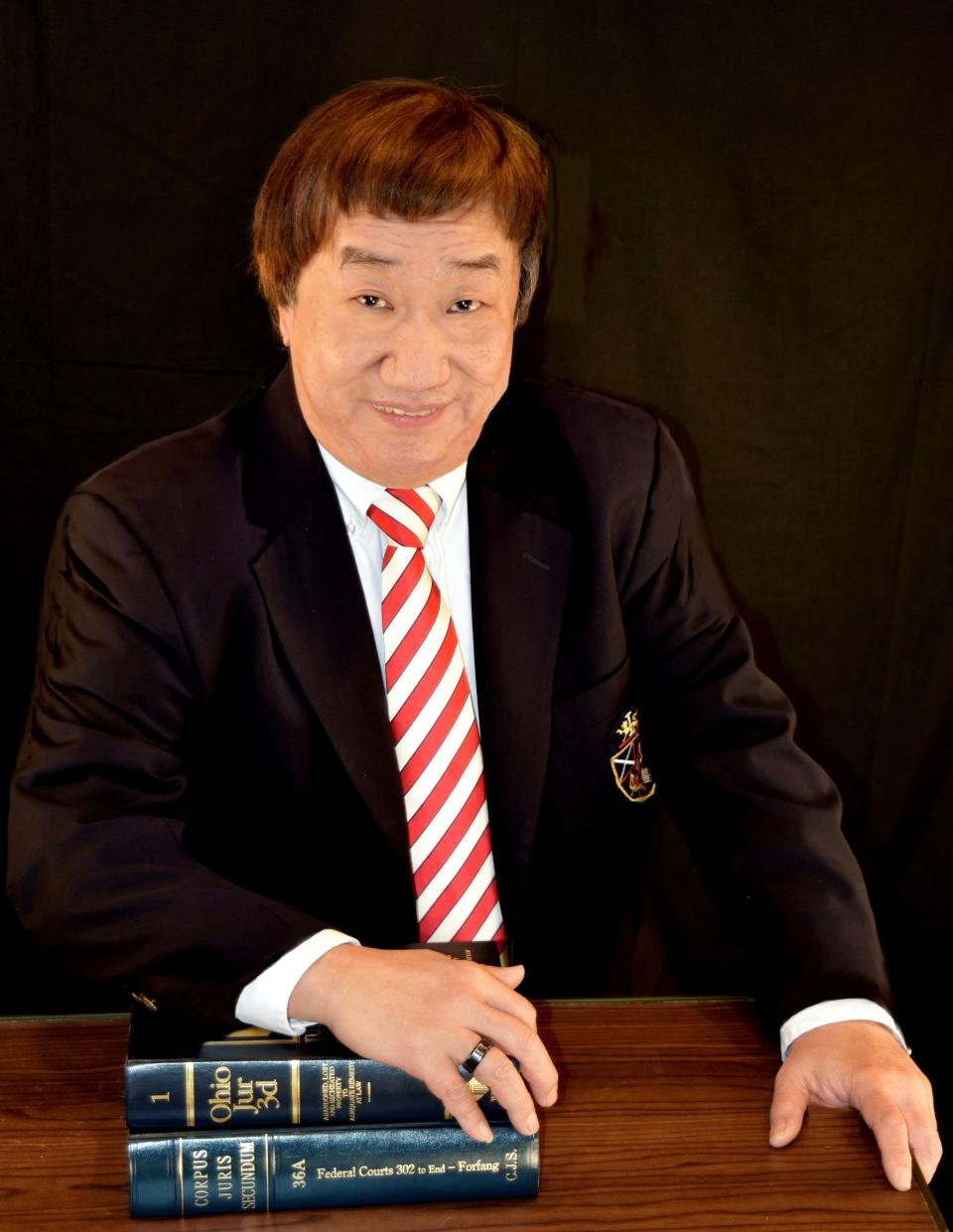Did Jan. 6 serve Americans or only Trump's personal interest? | Opinion
- Oops!Something went wrong.Please try again later.
- Oops!Something went wrong.Please try again later.
As the claim of absolute immunity of former President Donald Trump heads toward the United States Supreme Court, many people are drawn into this great courtroom drama, perhaps the greatest in the history of this nation.
Trump has been charged by a grand jury of a federal court located in the District of Columbia for alleged attempts to overturn the presidential election of 2020. Trump’s defense is that he is immune from criminal prosecution because he was acting as the President of the United States on Jan. 6, when an angry mob of his supporters stormed the U.S. Capitol in an attempt to stop the vote certification process.
Should presidents enjoy total freedom from being brought into a court of law on criminal accusations for acts done during their time in office? This is what "immunity" means: unrestricted freedom to act without being tried in a court by judge and jury.
Trump, through his lawyers, is arguing that he enjoys immunity to the extent that he cannot be held accountable before a judge and jury even for ordering, for example, SEAL Team Six, a special operations unit of the U. S. military, to kill a political rival. In other words, absolute immunity.
To be fair, Trump has conceded that he can and must first be impeached and convicted by Congress but never before. Trump is saying assassination of a political opponent is a political act that can be questioned by only the political branch, that is the Congress. In other words, political power trumps all.
Can you agree with this marvelous argument? Arguably, the immense power of the U. S. military, as well as the civilian agencies, are placed by the people at the beck and call of the president. However, before entering the White House, the person we elect as the president must take an oath to defend the Constitution and the laws of the United States. In practical terms, this means the president, before taking office, promises to defend the collective, consensual well-being of this nation.
History has shown that defending the United States is an uncertain and ever-changing undertaking. Often, action must be taken in the fog of foreign aggression and the mayhem of domestic insurrection. Thus, immunity is granted by the people to the president to insulate this officer from the threat of being hauled into court to explain conduct in the most demanding office of the land.
Trump has been accused by a grand jury of ordinary citizens of four counts of attempting to subvert the results of the 2020 presidential election. All investigations at the federal and state levels to date have found no evidence that Trump had lost the election because of vote fraud.

A good comparison of recent memory is the 1972-74 Watergate scandal. Before the presidential election of 1972, burglars were arrested inside the office of the Democratic National Committee and the investigation indicated that the break-in had been ordered from inside the White House. Prosecutors obtained a subpoena from a federal judge for tape recordings of Oval Office conversations. When the Supreme Court, rejecting claims of executive privilege, ordered the tapes to be filed, 18 minutes were missing. Facing a constitutional crisis, President Richard Nixon chose to avoid impeachment by resigning. Upon becoming president, Gerald Ford pardoned Nixon, thus preventing a criminal trial which most likely would have followed.
Under the Constitution, a person indicted for a crime enjoys the presumption of innocence and the prosecution bears the burden of proving that crime with evidence beyond reasonable doubt. And the accused has the right to be tried by a jury of the people and only convicted by unanimous verdict.
But does this mean Trump cannot be brought into court at all? Certainly − a president has immunity and cannot be brought into court for action to defend the well-being of the nation. But, in my opinion, a former president is answerable directly to judge and jury when an action was self-serving and was not taken in the best interest of the nation. An excellent example is when the president orders the assassination of a political opponent because this act pierces the very heart of our democracy.
Therefore, the immunity defense of Trump can be satisfactorily resolved by the common-sense question: "Did the action of Jan. 6 serve the interest of the people of the United States or only advance the personal interest of the accused?"
Do you think Trump should be protected by absolute immunity or not?
Charleston “C. K.” Wang is a resident of Silverton and a Cincinnati attorney.

This article originally appeared on Cincinnati Enquirer: Should Trump be protected by absolute immunity for Jan. 6 riot?

